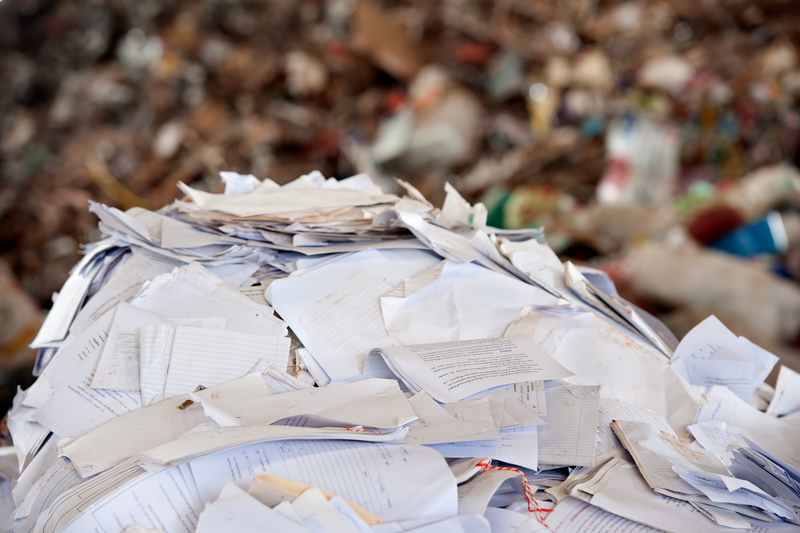Managing Yard Debris
Posted on 14/01/2025
Managing yard debris isn't simply about maintaining a pristine lawn; it's an essential part of sustainable gardening and responsible yard maintenance. Improper handling of organic waste can lead to numerous environmental problems, while effective management can benefit both your garden and the wider community. Let's delve into effective methods and practices for managing yard debris.
Understanding Yard Debris
Yard debris encompasses a wide range of organic material originating from garden and lawn upkeep. This includes leaves, grass clippings, branches, twigs, and weeds. Large-scale landscaping projects may also involve the removal of tree stumps and roots. Recognizing the types and quantities of yard waste your property produces can greatly help in deciding the appropriate management techniques.

The Environmental Impact of Yard Debris
Incorrect disposal of yard debris, such as burning or careless landfill dumping, can have adverse effects on the environment. Burning yard waste emits harmful toxins and contributes to air pollution. Meanwhile, adding organic material to municipal landfills consumes valuable space and produces methane--a potent greenhouse gas--as the debris decomposes anaerobically. Therefore, managing yard debris efficiently can reduce these negative impacts.
Methods for Managing Yard Debris
There are many ways to manage yard debris responsibly and sustainably. Here, we outline some of the most effective methods:
1. Composting
Composting turns your organic yard waste into nutrient-rich humus that enhances soil fertility. To start composting:
- Choose a location: Find a partially shaded spot in your yard.
- Create a pile or use a bin: You can build a compost pile directly on the ground or use a compost bin.
- Layer your materials: Alternate between green waste (like grass clippings) and brown waste (like leaves and twigs).
- Maintain the pile: Turn the pile regularly to aerate, and add water to keep it moist.
2. Mulching
Mulching involves spreading organic materials over the soil surface to retain moisture, suppress weeds, and improve soil fertility. It's a straightforward way to recycle leaves, grass clippings, and chipped branches.
- Leaf mulch: Shred leaves with a mower and spread a thin layer around trees and garden beds.
- Wood chips: Rent a wood chipper or hire a service to turn branches into mulch.
3. Grasscycling
Grasscycling is the practice of leaving grass clippings on the lawn after mowing. These clippings act as a natural fertilizer, returning valuable nutrients to the soil.
- Use a mulching mower: This type of mower shreds clippings finely enough to decompose quickly.
- Mow often: Prevent large clumps by mowing regularly so only small amounts are left behind.
4. Yard Waste Collection
Many municipalities offer yard waste collection services. This can be an effective way of managing yard debris, particularly when dealing with large quantities.
- Check local regulations: Many areas have specific guidelines for yard waste collection.
- Use compostable bags: Follow local requirements about bag types--compostable paper bags are often required.
- Schedule pick-ups: Coordinate with your local waste management service for regular pick-up schedules.
5. DIY Projects and Reuse
Creative reuse of yard debris can add character and utility to your garden:
- Build garden structures: Use larger branches to create trellises or garden fences.
- Create pathways and edging: Design natural pathways using wood logs or branches.
- Craft compost bins or leaf cages: Construct structures to manage compost or collect leaves easily.
Seasonal Debris Management
Effective management of yard debris requires season-specific strategies. Let's look at how to handle yard debris across different seasons:
Spring
Spring cleaning typically involves the removal of leaves, twigs, and other detritus accumulated over winter. This is an excellent time for:
- Pruning branches: Remove dead or damaged branches to promote new growth.
- Aerating the lawn: Facilitate grass root growth by relieving compaction.
Summer
With rapid plant growth, summer demands regular maintenance to handle grass clippings and garden waste:
- Grasscycling: Make weekly grasscycling a habit for nourishing your lawn.
- Watering effectively: Ensure that watering adequately supports compost and mulch degradation.
Fall
Autumn brings a significant volume of leaves and dead plant material:
- Leaf mulching: Convert fallen leaves into beneficial mulch.
- Composting: Start or ramp up composting efforts to manage the abundance of organic waste.
Winter
Winter focuses on reducing hardships for plants and maintaining cleanliness:
- Clean up snow-damaged branches: Cut down weakened branches to prevent accidents.
- Prepare for spring: Plan composting schedules and mulching activities in readiness for spring.

Tools and Equipment for Managing Yard Debris
Using the right tools and equipment can significantly ease the management of yard debris. Here are some recommended items:
- Rakes and leaf blowers: Ideal for clearing leaves and small debris.
- Compost bins: Essential for anyone serious about composting.
- Wood chippers: Turn larger branches into mulch.
- Mulching mowers: Leave fine clippings on the lawn to act as natural fertilizer.
Conclusion
Managing yard debris isn't just about keeping a neat and tidy garden. It forms a critical part of sustainable practices that can improve soil fertility, enhance plant growth, and mitigate environmental impact. Whether you're composting kitchen and yard waste, creating mulch for your garden beds, participating in municipal yard waste collection programs, or creatively reusing organic materials, efficient management of yard debris operates as an intersection between gardening beauty and environmental responsibility. Embrace these practices to create a more sustainable and thriving garden.
Latest Posts
Innovations Aiming to Reduce Ocean Waste
Reducing Waste in Christmas Celebrations




 020 3743 9508
020 3743 9508


